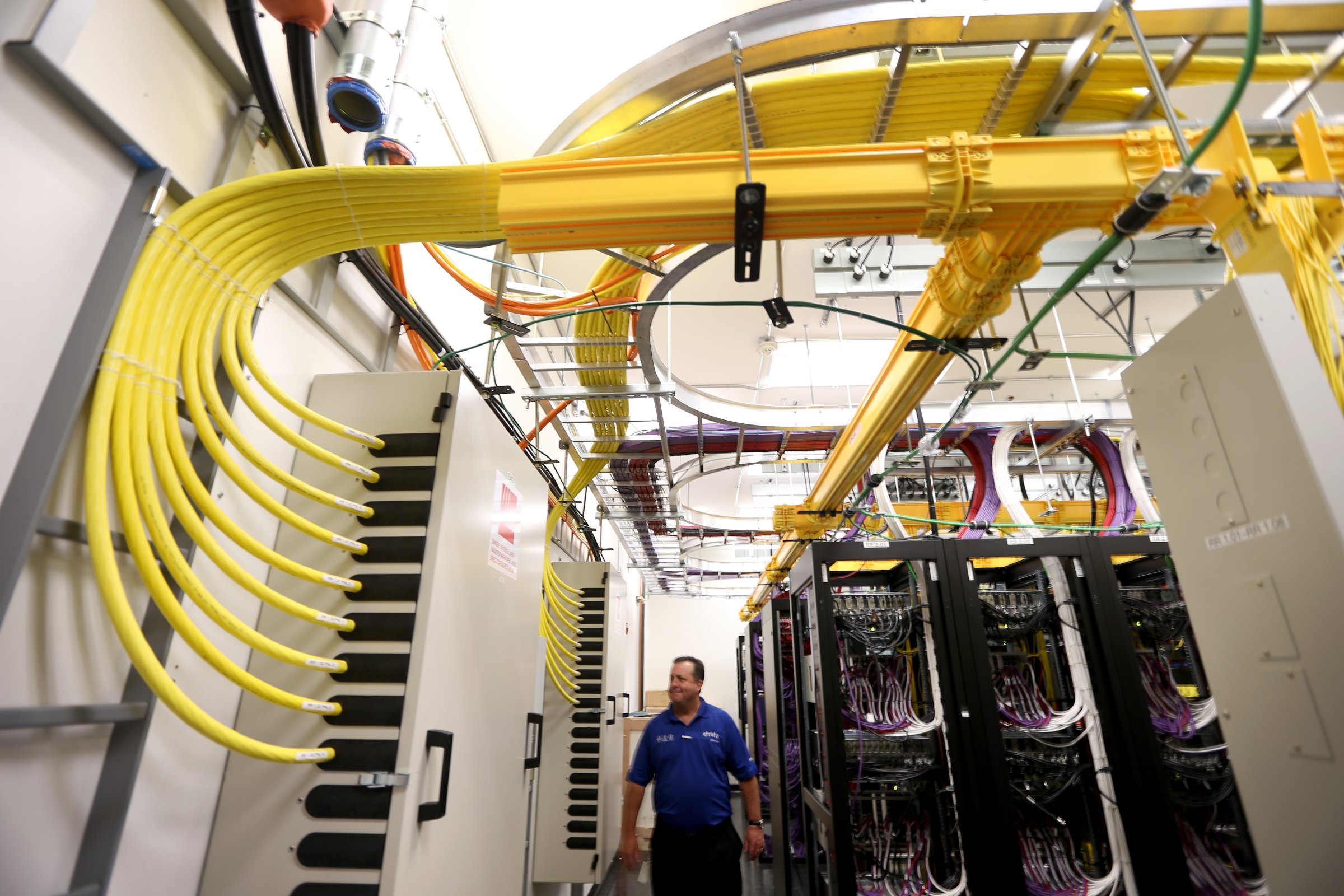
More than two dozen states including California, Florida and Connecticut are working with the Justice Department to determine if Comcast’s $45 billion offer to buy Time Warner Cable runs afoul of antitrust laws, sources confirmed to TIME on Wednesday.
The proposed merger of the two largest cable companies in the United States has attracted criticism from public interest groups who say that the deal would concentrate too much market power in the hands of one company.
Along with the Justice Department, which will address antitrust concerns, the merger faces scrutiny from the Federal Communications Commission, which is charged with ensuring that the deal serves the public interest. Comcast maintains that the deal isn’t anticompetitive because the two companies don’t compete in the same markets, and says the merger will result in improved service for consumers.
Some 25 states are currently participating in the multistate group reviewing the proposed transaction, according to a person familiar with the probe.
Connecticut Attorney General George Jepsen’s office is part of the group, a spokesperson for Jepsen confirmed to TIME. Florida Attorney General Pam Bondi’s office is also participating. “We are part of a multistate group reviewing the proposed transaction along with the U.S. DOJ Antitrust Division,” a spokesperson for Bondi said in an emailed statement.
California Attorney General Kamala Harris’s office is also part of the multistate review group, according to a person familiar with the matter. Harris’s office declined to comment. New York is not part of the multistate review group at this time, a spokesperson told TIME. A spokesperson for Texas Attorney General Greg Abbott said he “cannot confirm nor deny the existence or non-existence of an investigation.”
Indiana officials are also examining the deal to determine “the potential impact in Indiana,” a spokesperson told Reuters, which first reported the states probes. Pennsylvania, where Comcast is headquartered, is “reviewing the case independently,” a spokesman for the Pennsylvania attorney general’s office told Reuters. A spokesperson for the Justice Department confirmed the federal antitrust probe, but declined to comment on the multistate review group.
Combining Comcast and Time Warner Cable would create a corporate giant with approximately 33 million pay-TV customers and about one-third of the U.S. broadband Internet market. Comcast already owns NBCUniversal, after buying the media company from industrial conglomerate General Electric. As part of the proposed Time Warner Cable deal, Comcast will extend the commitment it made during the NBCUniversal review to abide by open-Internet principles until 2018.
Major entertainment and content companies that sell programming to cable and satellite companies have expressed concern that the merger could create a powerful gatekeeper with unprecedented buying power in the market. This could give the combined company what economists call “monopsony” power, which is one buyer with many sellers, as opposed to “monopoly” power, which is one seller with many buyers.
Such monopsony power could have benefits for consumers, because the combined company would have increased leverage in contentious negotiations with the TV broadcasters over “retransmission consent fees,” which cable and satellite companies pay for the right to carry popular programming like prime-time shows and sports. That could mean downward pressure on prices for consumers, but only if the combined company chose to pass those savings on to them, which is by no means certain.
Retransmission consent fees were at the heart of last year’s dispute between CBS and Time Warner Cable, which led to an unprecedented, monthlong CBS blackout for more than 3 million Time Warner Cable subscribers in New York City, Los Angeles and Dallas.
Time Warner Cable, which was spun off from TIME parent Time Warner in 2009, is an attractive takeover target because of its major presence in several important markets, including New York City, Los Angeles and Dallas, as well as large portions of Ohio, North Carolina and Maine. In order to help assuage regulators, Comcast has said it’s willing to jettison as many as 3 million subscribers in order to make sure the new company does not exceed 30% of the cable market.
Comcast declined to comment on the state probes, but it’s worth noting that these state attorneys general reviews are typical for a proposed merger of this size, because the deal has the potential to affect millions of consumers across the country. During the review process for Comcast’s acquisition of NBCUniversal, some 14 states participated.
More Must-Reads From TIME
- The 100 Most Influential People of 2024
- How Far Trump Would Go
- Why Maternity Care Is Underpaid
- Scenes From Pro-Palestinian Encampments Across U.S. Universities
- Saving Seconds Is Better Than Hours
- Why Your Breakfast Should Start with a Vegetable
- Welcome to the Golden Age of Ryan Gosling
- Want Weekly Recs on What to Watch, Read, and More? Sign Up for Worth Your Time
Contact us at letters@time.com